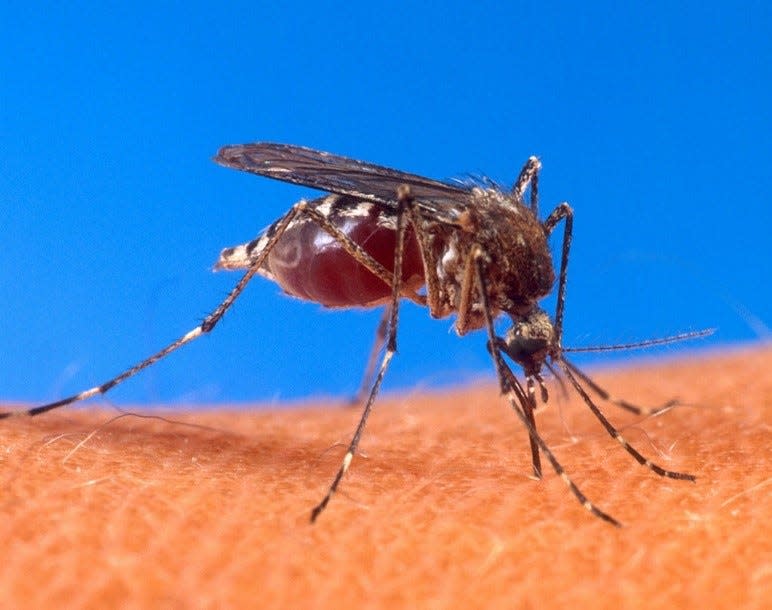West Nile virus confirmed in Ottawa County mosquito test

OAK HARBOR – Recent mosquito samples taken by the Ottawa County Health Department have tested positive for West Nile Virus (WNV). There have been three positive pools within the samples. This is the first WNV-positive sample collected since the mosquito monitoring program began in 2020.
All mosquitos trapped through the health department's mosquito monitoring program are submitted to the Ohio Department of Health (OHD) as part of the Vector-Borne Disease Program.
In response to the confirmed presence of West Nile Virus, the county health department is:
● Inspecting the affected area and working with property owners to reduce breeding sources bydraining stagnant water or treating stagnant water with products containing Spinosyn A andSpinosyn D. Spinosad is safe for humans and pets.
● Distributing informational flyers in the affected area.
● Continuing to monitor for West Nile Virus.
West Nile Virus is most commonly spread by infected mosquitoes and can lead to severe fever,encephalitis (inflammation of the brain) or meningitis (inflammation of the lining of the brain andspinal cord.)
The primary vector in Ohio is the northern house mosquito, Culex pipiens. Mosquitoes becomeinfected when they feed on infected birds. Infected mosquitoes can then spread the virus to humansand other animals when they bite.
Approximately 80% of people who are infected with WNV will not show any symptoms at all,but there is no way to know in advance if a person will develop an illness or not. Those who do developsymptoms usually do so between 3 and 14 days after they are bitten by the infected mosquito.There is no specific treatment for WNV infection, and care is based on symptoms.
West Nile Virus causes severe illness for 1 in 150 infected
About one in 150 people infected with WNV will develop severe illness. The severe symptoms caninclude high fever, headache, neck stiffness, stupor, disorientation, coma, tremors, convulsions,muscle weakness, vision loss, numbness and paralysis. These symptoms may last several weeks,and neurological effects may be permanent.
Up to 20% of people who become infected will have symptoms that can include fever,headache, body aches, nausea, vomiting and sometimes swollen lymph glands or a skin rash on thechest, stomach and back. Symptoms can last for a few days or up to several weeks
The best way to avoid the West Nile Virus infection is to prevent mosquito bites using the AVOID, PLAN,STOP method:
Avoid
● Apply repellents on exposed skin registered with the U.S. Environmental Protection Agency.
● Wear long sleeves and pants or consider staying indoors as much as possible.
Plan
● Have EPA-approved mosquito repellent and longs pants and shirts available to avoid bites.● Do outside activities at times when mosquito activity is less.
Stop
● Get rid of mosquito breeding sites by emptying or treating any standing water on your propertyeven small amounts of standing water can be a breeding site for mosquitos.
● Make sure screens on windows and doors are free of holes or rips. You may also opt to utilize airconditioning instead of open windows if possible.
This article originally appeared on Port Clinton News Herald: Ottawa County mosquito sample tests positive for West Nile virus
